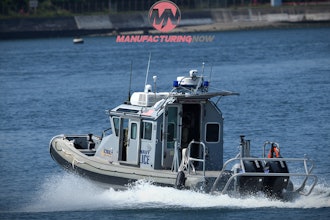The National Transportation Safety Board this week presented a cautionary tale for anyone out there not treating their piles of oily rags with the proper amount of respect.
About one year ago, a recreational yacht named Pegasus caught fire while moored near Gig Harbor, Washington and it burned for one hour before anyone noticed. No one was injured in the fire but by the time firefighters arrived on the scene, it was too late and the $1.5 million Pegasus was declared a total loss. At the time of the fire, the yacht owner said he suspected the fire had been caused by fireworks landing on the vessel. But the real culprit was oily rags.
NTSB said it determined the fire was sparked when a bag of raw-linseed-oil-soaked rags that had been left under a table near the stern of the vessel spontaneously combusted. The yacht owner and his employee had been staining the deck earlier in the day using a name-brand teak oil finish. After wiping off the excess stain with microfiber cloths, the employee wrapped the oily rags in clean ones, placed them in a bag and left them under a wooden table.
“Rags soaked with oil-based finishes, which are commonly used for painting and refinishing, pose a fire hazard if stored improperly,” the NTSB report said. “Because they generate heat as they dry, oily rags that are piled up, put together in a trash can, or bagged do not allow the heat to escape, creating a high risk for spontaneous combustion.”
Piles of oil or solvent-soaked rags is a normal part of doing business in a shop or manufacturing environment, but can still be a major safety issue. Oil-soaked rags are a combustion hazard, so companies should store oil-soaked rags in specially designed metal cans that can safely contain a self-ignited fire and control the danger of spontaneous combustion.
In March 2021, firefighters responded to a fire at Eastway Tank, Pump & Meter, a company that builds and services fuel-carrying tanker trucks. The fire was started when oily rags were set ablaze from cutting or welding activity. While Eastway Tank employees put out the fire some equipment sustained significant damage.






















